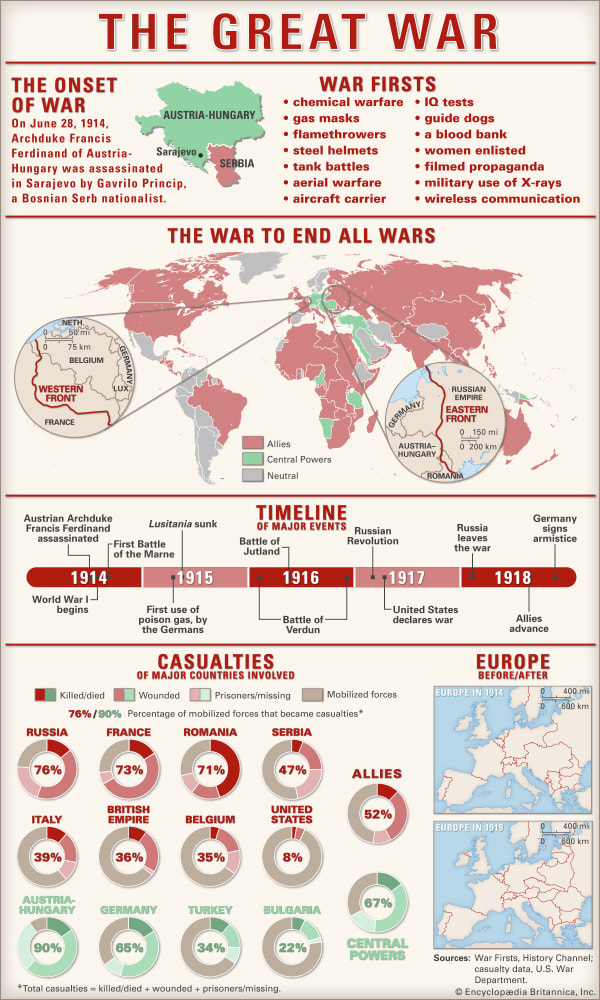Objectives
How and why United States entry into World War I and World War II created a “Great Migration” of African Americans to northern cities and how that migration impacted the nation.
• How and why American foreign policy shifted from neutrality to interventionism at the beginning of World War I. • How and why American foreign policy shifted to isolationism after World War I. · How and why the United States joined with the Allied Powers to end World War I. · How and to what extent American involvement in World War I affected United States foreign policy and helped make the “world safe for democracy. • How the United States government used propaganda to appeal to American patriotism and sell the nation’s war efforts (e.g., Committee on Public Information, Four-Minute Men, “Meatless Tuesdays”). • How and why Allied countries of World War I rejected Woodrow Wilson’s Fourteen Points and how that affected United States politics between world wars. • How, why and to what extent the federal government restricted the civil liberties of various groups of Americans during times of war (e.g., the Espionage and Sedition Acts, Schenck v. United States, Japanese-American internment camps and the Patriot Act). "MAIN-A" = Millitarism Secret Alliances Imperialism Nationalism Assassination of Archduke Franz Ferdinand --------------------------- U-Boat submarine Unrestricted submarine warfare Sussex Pledge Serbia Allies Central Powers Contraband Lusitania Isolationism ("no permanent alliances") hyphenated Americans (German-Americans; Irish-Americans) “Make the world safe for democracy” seizing of private/commercial ships by federal government War Industries Board Food Administration prefabrication Selective Service Act Russian Revolution Trench warfare “No Man’s Land” Mustard gas machine gun Doughboys John J. Pershing American Expeditionary Force war financing propaganda Committee on Public Information four-minute men refugee Espionage & Sedition Acts civil liberties Schenck vs. US. Liberty Bonds liberty measles, "Salisbury Steak" Great Migration women's role in the war Armistice Fourteen Points (1-5, 14) “The Big Four” Treaty of Versailles reparations League of Nations Henry Cabot Lodge |
Resources
WWI ws
Guided Reading Part 1 Guided Reading part 2 Guided Reading part 3 Guided Reading 4 WWI Webquest NC in WWI (excellent resources) Espionage & Sedition Acts (SHEG) Key Docs for Above Handout to print for above President Obama & the Espionage Act of 1917 Overview Espionage & Sedition Acts More overview Schenk vs. US overview Lost Battalion Worksheet WWI propaganda posters (multiple countries) WWI posters from Learn NC 4 minute man speeches The Great Pandemic Espionage & Sedition Acts (SHEG) Key Docs for Above Handout to print for above President Obama & the Espionage Act of 1917 Mark Ruffalo reads from speech included in Debs SHEG lesson below |
